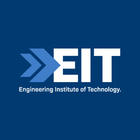Undergraduate Certificate in Industrial Automation Engineering
Undergraduate Certificate in Industrial Automation Engineering
Industrial automation is an expanding stream of engineering, with an increasingly profound influence on most industries and enterprises. Upon completion of this undergraduate certificate, you will have fundamental knowledge, skills, and understanding of Industrial Automation engineering disciplines. You will be able to apply fundamental physics, chemistry, engineering drawing, demonstrate scientific,…
Categories
COURSE DESCRIPTION
Industrial automation is an expanding stream of engineering, with an increasingly profound influence on most industries and enterprises. Upon completion of this undergraduate certificate, you will have fundamental knowledge, skills, and understanding of Industrial Automation engineering disciplines. You will be able to apply fundamental physics, chemistry, engineering drawing, demonstrate scientific, mathematical, contextual factors, and design practice knowledge that has been contextualized for industrial engineering applications.
Program Details
Due to rapidly evolving technology, industrial processes are becoming increasingly automated. Previously mechanized systems, which required human intervention, now use computerized control systems for higher accuracy, precision, and cost-effectiveness. As industrial automation continues to develop with technological advancements, it is essential that prospective engineers graduate with skills that can be applied within the industry. Our undergraduate certificate provides you with cutting-edge skills that are valuable in the workplace.
With this qualification, you will have acquired the fundamental knowledge which underpins both this and other fields of engineering.
Program Structure
You must complete 12 credit points comprising four core units. There are no electives in this program. The full-time program duration is six months over 1 semester (or part-time equivalent). For further study, graduates may consider EIT’s Bachelor of Science (Industrial Automation Engineering).
Potential Job Outcomes
Potential job roles include engineering and management positions in the following areas of expertise:
Process control, commissioning and production management
Plant, factory and building automation
Programmable Logic Controllers (PLCs), Distributed Control Systems (DCSs) and SCADA
Industrial design and consultation
Supply chain management, quality assurance, and sales
Operations, maintenance, field services, and technical support
Controls, instrumentation, and robotics
REQUIREMENTS
Entry is available to applicants who hold one of the following:
A Year 12 Australian Senior Certificate of Education (or equivalent for International Students), completed within the past 3 years, with a minimum score of 60% in Maths.
Applicants who have completed Year 12 (or equivalent for International Students) more than 3 years ago are required to also demonstrate 2 years of relevant work experience in the field of study applied for; OR
A relevant Engineering AQF Certificate IV (or equivalent overseas qualification) with successful completion of all Maths units/modules and 2 years relevant work experience in the field of study applied for; OR
An Engineering AQF Diploma (or higher) (or equivalent overseas qualification) with successful completion of all Maths units/modules.
English Language Proficiency Requirements:
Entry to this course requires demonstration of English language proficiency at the level of an IELTS overall score of at least 6.0 (with no individual band score less than 5.5).
EDUCATIONAL INSTITUTION
The Engineering Institute of Technology (EIT) delivers industry driven programs to equip its students with the skills required in the real industrial world. Its study options are available across Perth and Melbourne; and include classroom sessions, practical lab exercises, assessments, class discussions and self-study. Additionally, students enjoy access to industry experts based around the globe through live and interactive online presentations. All EIT programs provide access to remote laboratories and cutting-edge simulation software. Hands-on laboratory practicals are an essential component of EIT’s programs to ensure students put theory into practice. These hands-on workshops cover the major discipline-specific applied skills required for competency in engineering practice.




